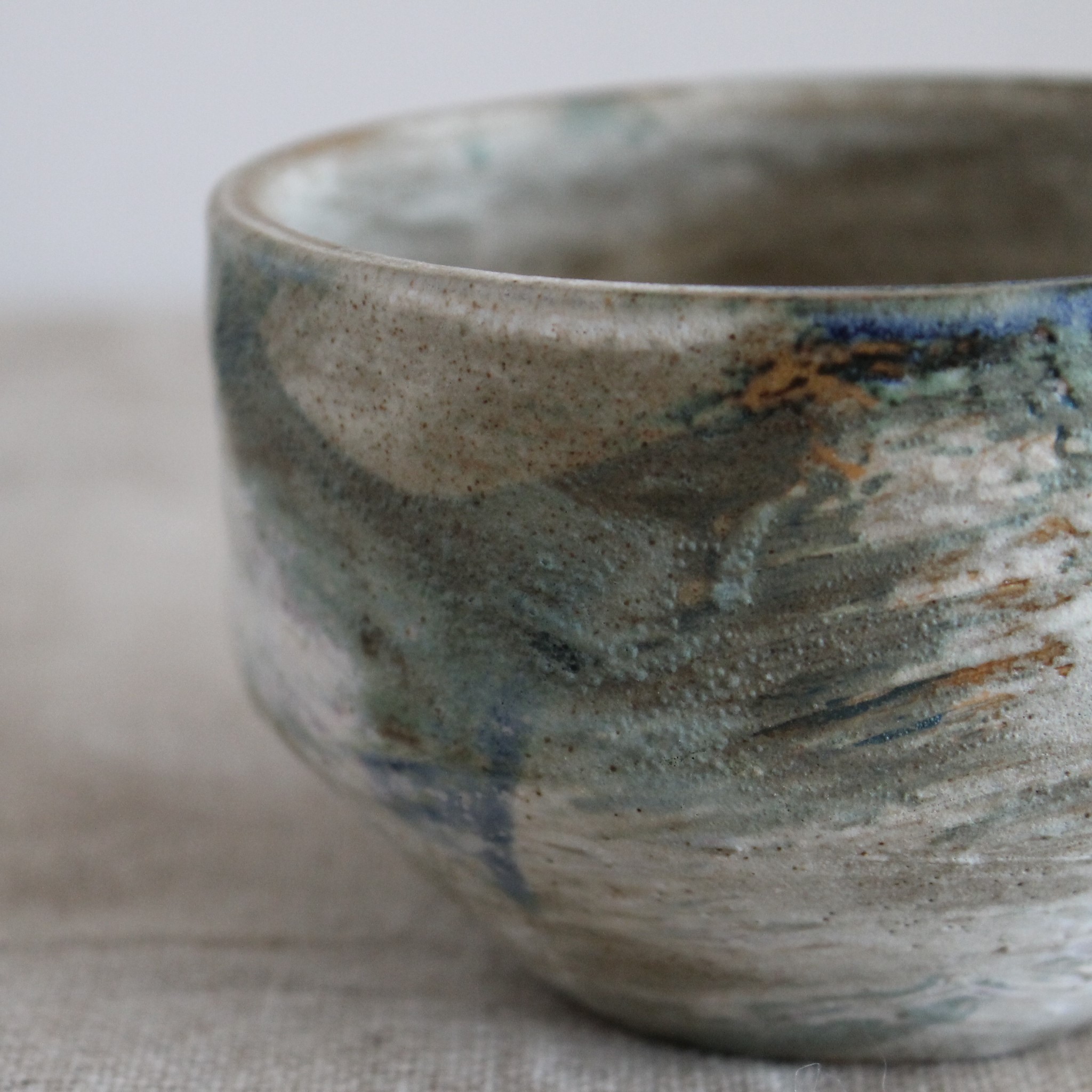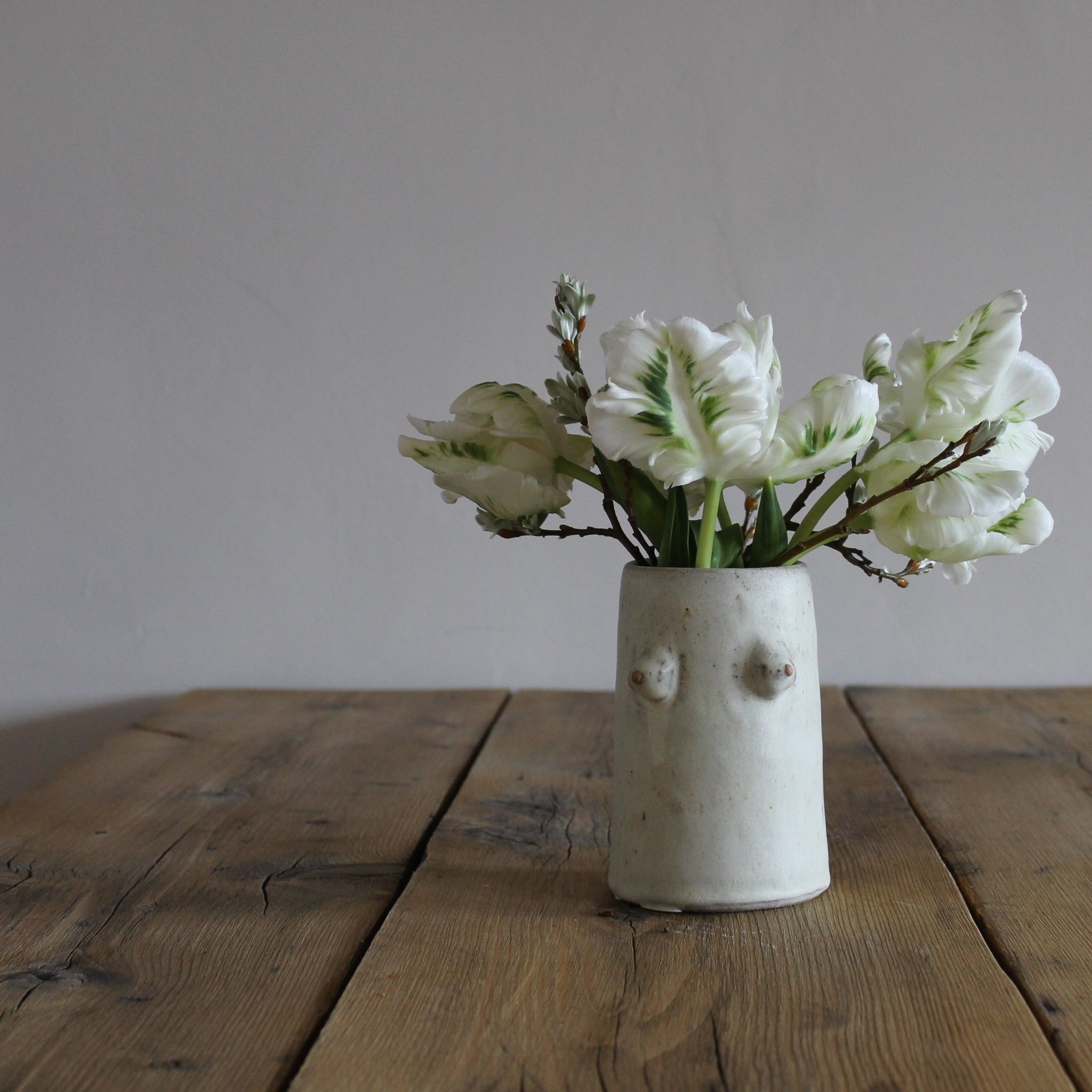Creative in The Countryside: Jessica Cooper Ceramics
Nicola: Tell us about your journey to starting Jessica Cooper Ceramics and the work you do?
Jessica: Working with clay has been a long and non-linear journey! When I was a small child I made mud pies at the bottom of the garden, shaping them carefully and then cooking them in the greenhouse. I didn’t know that making things was a career option, so I went out into the world and became a mental health worker.
I started working with clay as an adult when my partner bought me evening classes for Christmas. He could see I needed somewhere to focus my creative energy (I was making a lot of ugly sewing projects at the time!). I was lucky to be shown the ropes by George Ormerod, a very encouraging teacher. I bought my own kiln and set up a little studio at home. I met and apprenticed with a Cumbrian potter, Walter Storey, who taught me to throw and showed me the ropes of glaze chemistry.
I have been selling my work for five years and it has changed radically in that time from small, slab built pieces to larger, wheel thrown domestic ware.
Nicola: You say you hope to make imperfect and lively pots that slot into someone’s hand with the pleasing comfort of coming home. Can you explain to us what this means to you?
Jessica: For me, pottery is about a feeling more than about the object you produce. I try to create conditions where I can focus intuition, attention, and heart as I work, in the hope these feelings come through in the pieces I make. My hope is that in using my pots, people connect to some feeling within themself. I suppose it is a bit to do with mindfulness, being present in the moment and trying to stay true to myself and make my own pots. I naturally throw quickly and like to glaze with energy rather than precision. I enjoy sloshing things about and getting really messy in every process!
I make pots to be used in homes, kitchens and gardens, and I suppose my quiet hope is that tea will be drunk on back steps, a cake will be spooned from bowls and that my pots will get to play a small role in the beautiful humanity of daily life.
Nicola: I’d love to know more about the process of how your work develops from initial idea to the final piece.
Jessica: I work in a very intuitive way. I find that the more I try to plan my work the more it goes wrong and doesn’t feel like mine. I show up in the studio on a regular basis and make things. Showing up and making is the only important part! I make a lot of rubbish and recycle a lot of pots.
I also keep sketchbooks, mostly written rather than illustrative. I use a kind of personal lexicon to express my feelings through my work. Every form, texture, colour, and decision has a meaning for me. So in this way, if I have something I want to express in a pot, a story or a moment, I use the lexicon to guide my choices. I also try to remain playful and light about my work, I remind myself that it is just pottery, something to find joy in, not to take too seriously.
Nicola: You live and work in a remote part of the North Pennines. Can you tell us more about your home, your workspace, and what a typical day for you looks like?
Jessica: I live at one of the highest points in the North Pennines. Our home looks out over Cross Fell, and into the Eden Valley. Our views are really exceptional. I have a shed-come-studio in the garden with kiln, wheel and clay. It’s a simple workspace and I love working with my door open or taking my wheel to throw outside on a sunny day. I also work in the shared studio at the Alston Pottery, where I apprenticed, to make some of the bigger pieces.
At the moment a typical day is spent with my one-year-old son. I work in a flexible way around his needs. Each week we plan out our family schedule to ensure I have child-free time in which to work, usually two days or 16 hours over the week. I find it critical for our domestic life to have designated time for work, otherwise family, business and domestic life can become a messy tangle of unmet needs. Generally, I try to be doing one thing at a time, but this is a juggle!
Nicola: I know your work is inspired by nature. Can you tell us why nature is so important to you, and how it influences the work you do?
Jessica: Often I feel moved by intangible parts of the natural world, the sunlight fading matt blue over a fell, the quiet stillness of early winter mornings before the sun comes up. I try to celebrate these feelings and tell the stories of life lived in a wild landscape through my pots.
Nicola: And lastly, if someone reading your story was inspired to follow their own creative dream, what advice would you give them?
Jessica: I would say that it is ok if you feel like the odd one out or a bit of a black sheep. I come from a family where my way of living and working is pretty alternative, compared to the traditional corporate jobs and lifestyles my parents and siblings have.
Creative dreaming and living are often about working out what your own measures of success and wealth are, and what you need to feel rich in a whole sense. It is a perfectly admirable dream to find a way of living and working that works for you
You can find out more about Jessica below:




